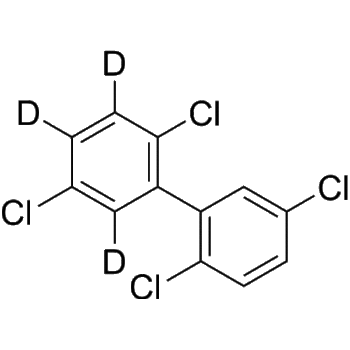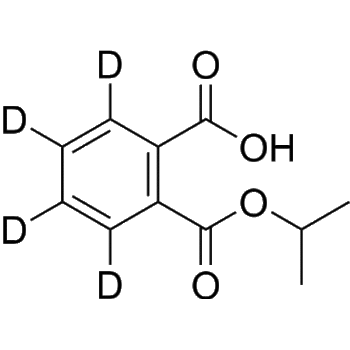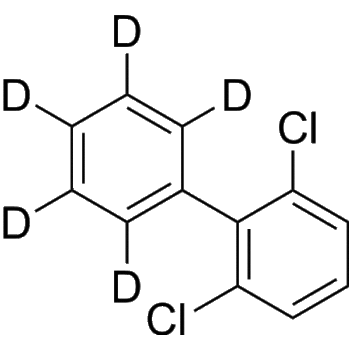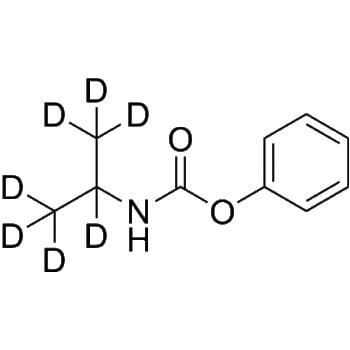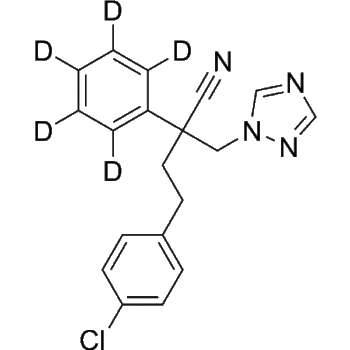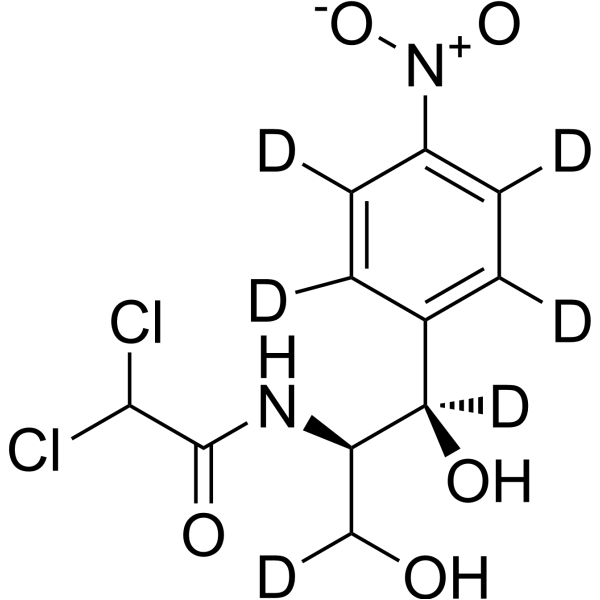
Download Files:
Threo-Chloramphenicol-d6
Products Details
Product Description
– Threo-Chloramphenicol-d6 is the deuterium labeled Chloramphenicol[1]. Chloramphenicol is an orally active, potent and broad-spectrum antibiotic. Chloramphenicol shows antibacterial activity. Chloramphenicol represses the oxygen-labile transcription factor and hypoxia inducible factor-1 alpha (HIF-1α) in hypoxic A549 and H1299 cells. Chloramphenicol suppresses the mRNA levels of vascular endothelial growth factor (VEGF) and glucose transporter 1, eventually decreasing VEGF release. Chloramphenicol can be used for anaerobic infections and lung cancer research[2][3][4].
Web ID
– HY-B0239S2
Shipping
– Room temperature
Applications
– Metabolism-sugar/lipid metabolism
Molecular Formula
– C11H6D6Cl2N2O5
References
– [1]Russak EM, et al. Impact of Deuterium Substitution on the Pharmacokinetics of Pharmaceuticals. Ann Pharmacother. 2019 Feb;53(2):211-216.|[2]Hsu HL, et al. Chloramphenicol Induces Autophagy and Inhibits the Hypoxia Inducible Factor-1 Alpha Pathway in Non-Small Cell Lung Cancer Cells. Int J Mol Sci. 2019 Jan 3;20(1):157. |[3]Yuan ZR, et al. Chloramphenicol induces abnormal differentiation and inhibits apoptosis in activated T cells. Cancer Res. 2008 Jun 1568(12):4875-81. |[4]Li CH, et al. Chloramphenicol causes mitochondrial stress, decreases ATP biosynthesis, induces matrix metalloproteinase-13 expression, and solid-tumor cell invasion. Toxicol Sci. 2010 Jul116(1):140-50. |[5]Turton JA, et al. Characterization of the myelotoxicity of chloramphenicol succinate in the B6C3F1 mouse. Int J Exp Pathol. 2006 Apr87(2):101-12. |[6]Bartlett JG. Chloramphenicol. Med Clin North Am. 198266(1):91-102.
Molecular Weight
– 329.17
SMILES
– O=C(N[C@H](C([2H])O)[C@@](O)([2H])C1=C([2H])C([2H])=C([N+]([O-])=O)C([2H])=C1[2H])C(Cl)Cl
Clinical Information
– No Development Reported
Solubility
– 10 mM in DMSO
Target
– Akt;Antibiotic;Apoptosis;Autophagy;Bacterial;Beclin1;HIF/HIF Prolyl-Hydroxylase;JNK;MMP;VEGFR
Pathway
– Anti-infection;Apoptosis;Autophagy;MAPK/ERK Pathway;Metabolic Enzyme/Protease;PI3K/Akt/mTOR;Protein Tyrosine Kinase/RTK
Product type
– Isotope-Labeled Compounds
Disclaimer: All products are for Research use only unless clearly stated otherwise on the product datasheet. Datasheets provided on the website are drafts for reference purpose only and you are requested to always refer to the hard copy included in the kit for your experimentation. Agdia Products are available for delivery only in Canada.
